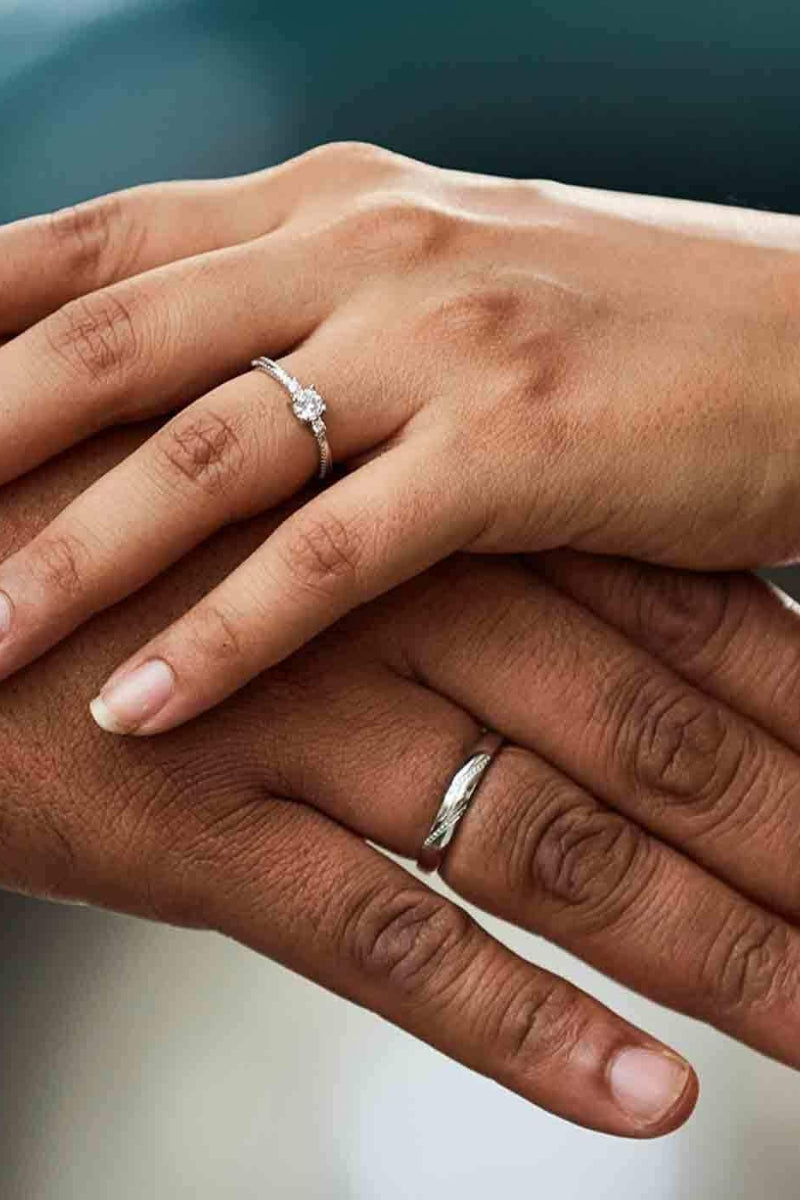Whether you’ve been partnered for six months, six years, or over six decades, easy romantic gestures can help cut through the weeds of monotony that can make relationships feel a little less glamorous than the movies. And while films such as "Love Actually" and "When Harry Met Sally" can inspire ideas for being sweet, chocolates and roses don’t always get the job done in real life.
Making the effort to add more romance isn't just for people who want to avoid getting stuck in a loveless marriage (or a sexless marriage); every couple can benefit, no matter how content they might be already. So for a little inspiration on how to actually be more romantic—without spending a small fortune—we turned to the pros.
According to Arthur Aron, PhD—a psychology professor at Stony Brook University who’s dedicated his life’s work to researching love and closeness—the formula for becoming more romantic involves kindness, attention, and a mix of shared activities. It’s also found in open conversation, which he encourages with “The 36 Questions That Lead to Love,” his New York Times-approved list of queries everyone should answer with their special someone. Questions range from “Given the choice of anyone in the world, whom would you want as a dinner guest?” to “How do you feel about your relationship with your mother?
“It is possible to have a really high sense of passion and romance, even in a long-term relationship,” Aron says.
However, all the suggestions in the world won’t help if you don’t first turn a critical eye on yourself. At least, that’s the philosophy of Peter Pearson, PhD, a relationship expert who co-founded the California-based Couples Institute, which trains marriage counselors and other therapists to improve the joint lives of couples.
Pearsons insists individuals reflect on why their relationship is important before considering the union they’re hoping to create and what their goals are. “This will give you and your partner the motivation to do the work that will be necessary to reach that target,” Pearson says.
With that in mind, consider the following advice for being more romantic a starting point for meeting the needs of you and your partner.
First, put in the work - for yourself.
Before focusing on your partner, Aron suggests you pay attention to yourself. “A happy person will make their partner happy, too,” he says. Search for any red flags within, and ask yourself whether you’re dealing with issues such as depression, anxiety, and low self-esteem that should be addressed—or if your communication skills allow you to hear and be responsive to your partner’s needs.
Plan a fun activity once a week.
Way past the honeymoon phase? An easy method toward rekindling the flame is to try something new together. You don’t have to partake in a thrill sport like skydiving, but simple pastimes like trying a new cuisine or taking a cooking class can increase passion. As a result, you’ll learn to associate thrill and excitement with your partner, says Aron.

Celebrate even the smallest successes.
Let your partner know their achievements are worth commemorating when something good (like a promotion, or a wave of luck) happens to them. “That has a more positive effect than just supporting them during periods of hardships,” Aron notes. To do so, plan a special homemade dinner or write them a card as a way of shouting your excitement from the mountaintops.
Revisit—or get to writing—those vows.
Pearson encourages couples to reread or write new vows as a way to work on the marriage, by remembering the qualities that brought you together in the first place. If you’re not married, he suggests putting pen to paper. “Those vows are better than any tips any expert can give them,” Pearson says.
Think of creative new points of conversation.
Those date nights aren’t so special if they’re spent discussing work, politics, or the mundanities of everyday life. Instead, Pearson urges couples to switch things up by asking unexpected questions. For example, ask what your partner thinks about (other than work) during their daily commute, or what quality of yours they appreciate the most, so you can express it more often. Even childlike queries like, “What superhero power would you love to have?” work well. Then, ask what they’d be willing to give up to attain that power.
Befriend other couples.
This may sound taxing, but cultivating warm and intimate friendships with other pairs can bring you closer, Aron says.
Doing so will foster the feeling of mutual support and open you up to engage in deeper conversations the two of you may not have had on your own. Shy? A little rusty? No problem—check out these tips on how to make new friends as an adult.
Regularly tell your partner what you love about them.
It doesn’t cost anything to be thankful—and expressing gratitude for someone shows that you notice and appreciate their efforts. Do you appreciate their compassionate nature, or perhaps you love their energetic approach to the start of every day? Be specific with what qualities you value to most to indicate you’re paying close attention. Ultimately, small efforts to show recognition will make your partner feel seen.







